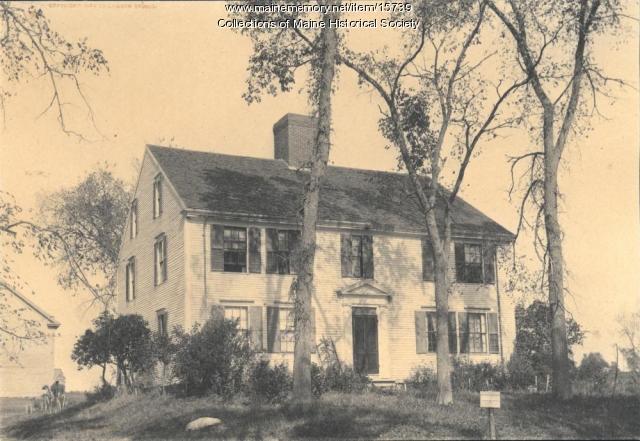Keywords: Stephen Longfellow
- Historical Items (110)
- Tax Records (0)
- Architecture & Landscape (0)
- Online Exhibits (24)
- Site Pages (13)
- My Maine Stories (1)
- Lesson Plans (2)
Lesson Plans
Your results include these lesson plans. Your results include these lesson plans.
Lesson Plan
Longfellow Studies: The Elms - Stephen Longfellow's Gorham Farm
Grade Level: 6-8, 9-12
Content Area: English Language Arts, Social Studies
On April 3, 1761 Stephen Longfellow II signed the deed for the first 100 acre purchase of land that he would own in Gorham, Maine. His son Stephen III (Judge Longfellow) would build a home on that property which still stands to this day. Judge Longfellow would become one of the most prominent citizens in Gorhams history and one of the earliest influences on his grandson Henry Wadsworth Longfellow's work as a poet.
This exhibit examines why the Longfellows arrived in Gorham, Judge Longfellow's role in the history of the town, Henry Wadsworth Longfellow's vacations in the country which may have influenced his greatest work, and the remains of the Longfellow estate still standing in Gorham today.
Lesson Plan
Longfellow Studies: The Exile of the People of Longfellow's "Evangeline"
Grade Level: 6-8
Content Area: Social Studies
Other materials needed:
- Copy of Henry Wadsworth Longfellow's "Evangeline"
- Print media and Internet access for research
- Deportation Orders (may use primary document with a secondary source interpretation)
Throughout the course of history there have been many events in which great suffering was inflicted upon innocent people. The story of the Acadian expulsion is one such event. Britain and France, the two most powerful nations of Europe, were at war off and on throughout the 18th century. North America became a coveted prize for both warring nations. The French Acadians of present day Nova Scotia fell victim to great suffering. Even under an oath of allegiance to England, the Acadians were advised that their families were to be deported and their lands confiscated by the English. This event was immortalized by Henry Wadsworth Longfellow's epic poem "Evangeline", which was published in 1847.


